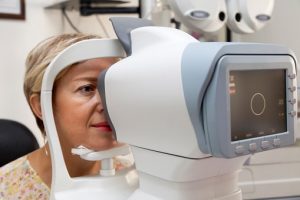
A study carried out by the Vision Loss Expert Group reviewed data on vision loss among high-income countries from 2015 and looked at medical literature from the past 25 years.
Based on the over 50 countries that were surveyed, the findings unveiled that the UK had the fifth lowest prevalence of vision loss. Belgium had the lowest prevalence of blindness with 0.46 percent.
On the other hand, the UK had the highest prevalence of moderate to severe vision impairment along with Andorra, Serbia, and Switzerland.
The most common cause of blindness among Western Europe was cataracts, followed by age-related macular degeneration (AMD), and glaucoma. The most common cause of moderate to severe vision impairment was an uncorrected refractive error, or more simply put, not wearing glasses to improve minor vision issues.
Professor Rupert Bourne who led the study explained, “Vision impairment is of great importance for quality of life and for the socioeconomics and public health of societies and countries. Overcoming barriers to services which would address uncorrected refractive error could reduce the burden of vision impairment in high-income countries by around half. This is an important public health issue even in the wealthiest of countries and more research is required into better treatments, better implementation of the tools we already have, and ongoing surveillance of the problem.”
The study reveals that simply having your vision checked can go a long way in the prevention of blindness. It can catch any changes in vision and the optometrist can offer recommendations on how to fix it, such as wearing glasses.
Related:




